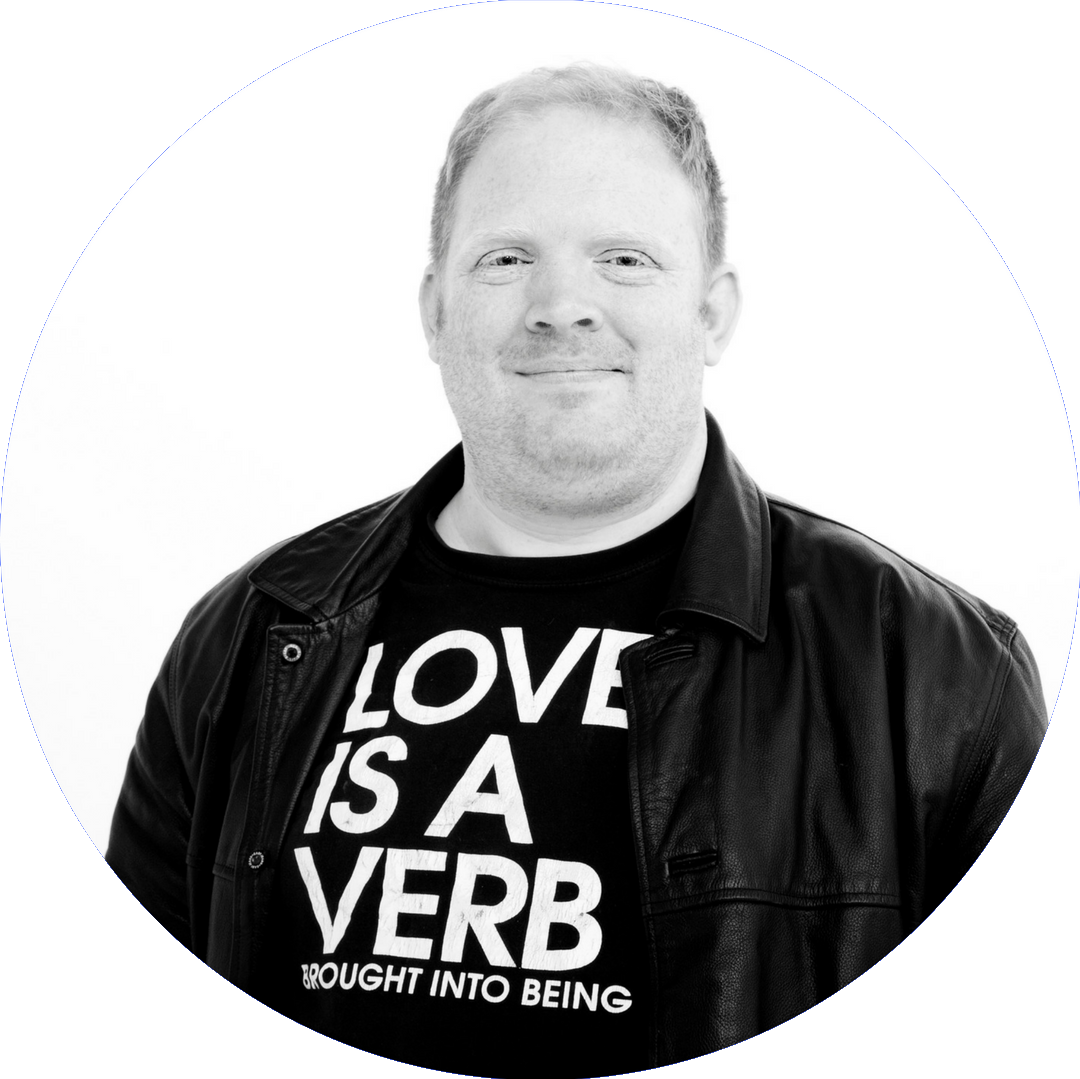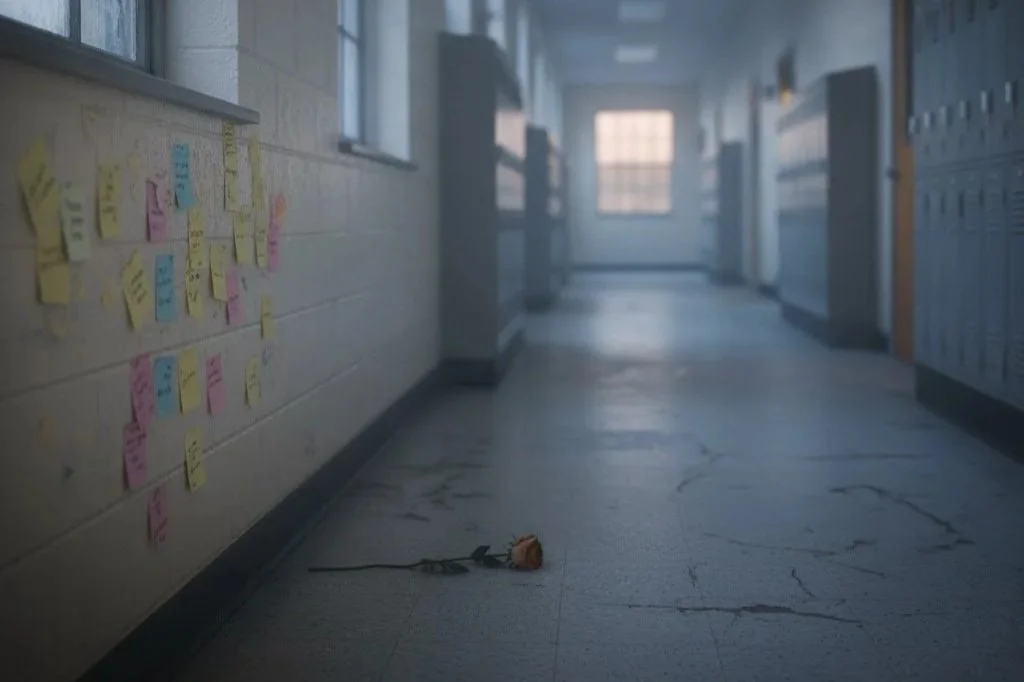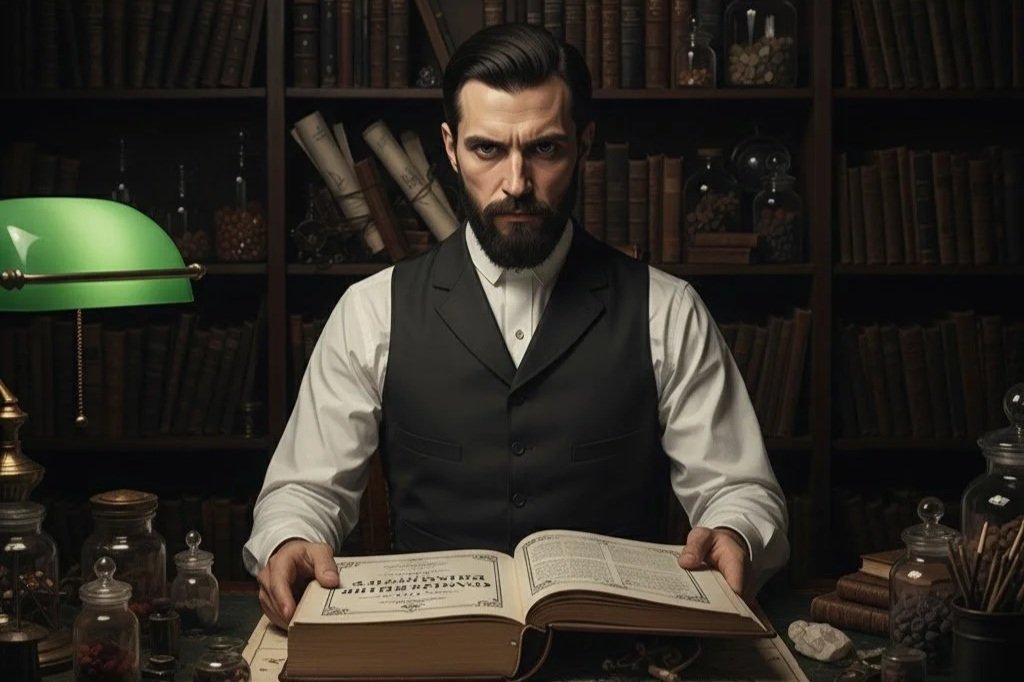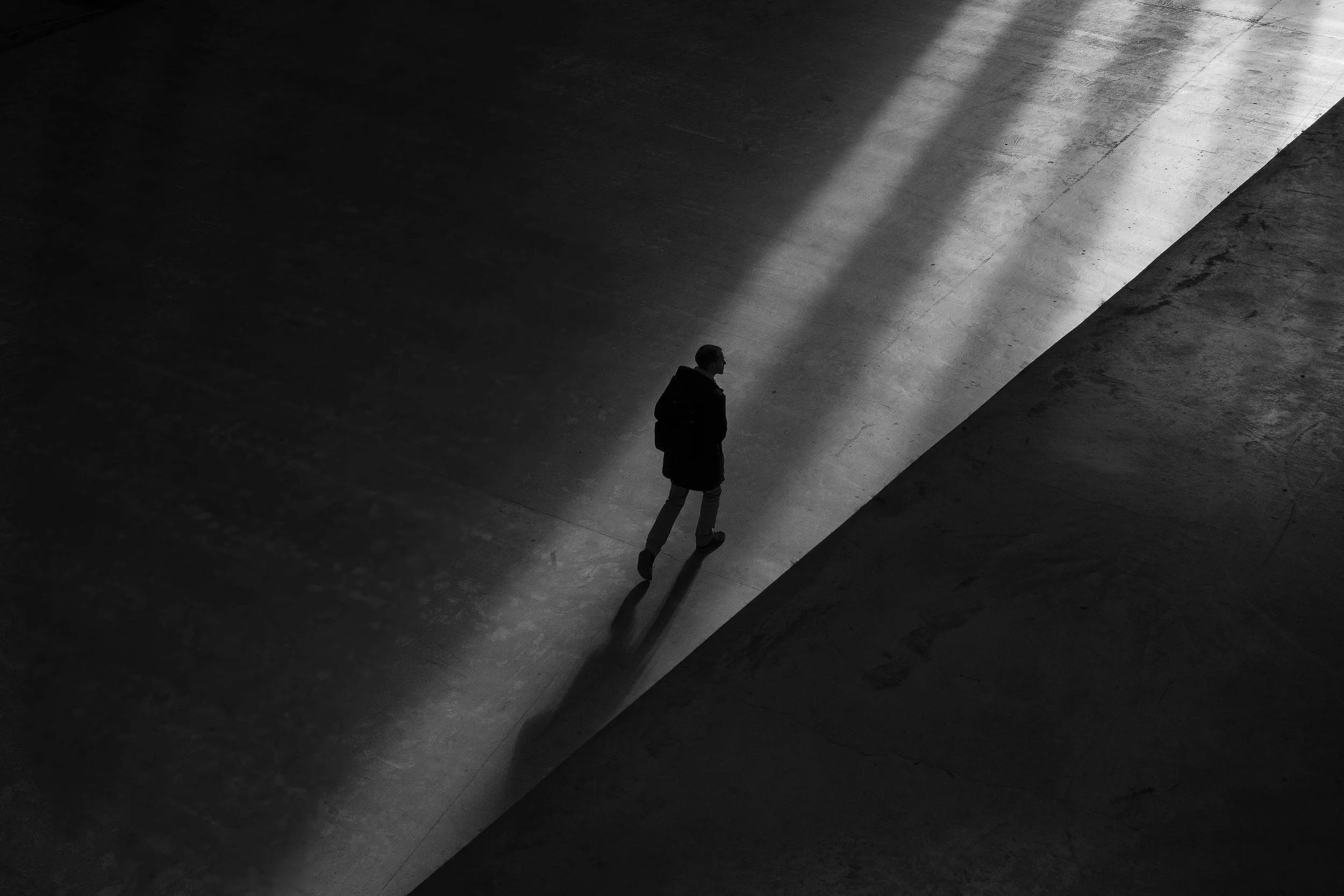Father, Dearest
# Father, Dearest
The rain outside my window wasn't a downpour. It was a thin, persistent weeping against the glass, matching the cold knot of concentration in my stomach. I traced a line across the heading of the open textbook on my desk: 'Irreversible Neural Changes: The Traumatic Genesis of Pathological Behaviour.'
This was my world. I dealt in the anatomy of depravity, using clinical detachment as armour. I mapped cruelty as a series of predictable circuits, a flaw in prefrontal cortex wiring. That framework kept the human cost at a safe distance, the screaming absence of the victims outside the clinical scope. It allowed me to dissect a monster's soul without letting the horror touch my own. I specialised in how the architecture of the criminal mind is first drawn in childhood trauma. It felt safe, intellectual, contained.
My father, Elias Hawthorne, was the complete antithesis of my work. He was the picture of constructed peace. A retired engineer, known for his meticulous rose garden. His intelligence wasn't loud; it was economical, expressed in the terse, unyielding precision of his sentences. I'd always ascribed his occasional, terrifying stillness to the fastidiousness of an engineer. The granite line of his jaw when frustrated. The way he would go silent for hours, calculating.
The call from Scotland Yard came through like a cold clang of distant bells. Seven disappearances, scattered across two decades, had finally been linked. I spent the first week tracing patterns. The victims were minor authorities, people who represented institutional power in small, specific ways.
In my briefing, my voice was steady. 'We're looking at a methodological, highly organised offender. He leaves nothing because the absence of evidence is part of his signature. His core objective isn't lust; it's superiority.'
The monster, for me, was a flat, clinical description on the wall. Until one evening.
I was on a video call with Father, ostensibly discussing his recent cataract surgery. He was talking about the procedure's required precision.
'It's remarkable,' he said, holding a hand up to the light. 'The surgeon's focus. That level of minute, flawless execution is what truly separates the amateur from the master.'
'I see the same thing in my work, Father,' I replied. 'Only my subjects apply that focus to depravity. We've been looking at the latest clue left by our killer, trying to reverse-engineer his process. It's all about method.'
Then I mentioned a frustrating development in the cold case. The killer had left a deliberately misleading clue at the last crime scene, a specific type of marine knot often used to sink weights.
'A slip, really,' I sighed. 'The hallmark of the narcissist is needing to show off. He left a simple fisherman's knot, a marine knot used to sink weights, and nothing more.'
My father paused mid-sentence. His eyes, newly sharp from surgery, didn't flicker with confusion, but with sudden, acute recognition. The words he had been speaking died on his tongue.
A beat. Two beats.
'Ah,' he murmured, his voice dry and quick. 'Yes, well. A common knot, I suppose. It... it was likely chosen not for identification, but for its function: to ensure an item would stay submerged.'
He immediately corrected his composure, but the rhythm was broken.
I ended the call feeling physically cold. The certainty was a slow-motion impact, not emotional, but structural. It wasn't just that he knew the knot. It was that the perfectly constructed reality of my father had just registered its first catastrophic tremor. My father had no history of fishing or sailing. He was a man who only acquired knowledge by necessity. Why would the killer's operational intent with the knot cause his composure to crack? A detail only discussed inside the task force.
The thought wasn't professional; it was personal.
*He knows that knot's purpose.*
I mapped the killer's cooling-off periods. The strategic, necessary gaps between murders. Periods of operational necessity: time needed to dispose of evidence and reset his double life.
The dates stood out like crimson flares.
August 2008. July 2013.
I remembered the isolated cottage in the Cotswolds during that first August. The 'perfect' holiday.
I recalled being ten, watching Father digging a hole near the fence, an industrial effort for a single juniper bush. He was covered in sweat, his movements economical. 'Anything worth planting must be given absolute structural integrity,' he'd said. 'You must secure your foundations. Thoroughness is indistinguishable from genius.'
I realised now he wasn't talking about the bush. The juniper was merely camouflage, placed on top of what truly required structural, permanent containment.
That night, he told me the story of the King of Strategy who, facing a perfect, thriving kingdom, systematically took it apart and rebuilt it, not because it was flawed, but to prove his ultimate superiority over the initial design and the chaos of organic growth. He taught me that mastery lay not in creation, but in the meticulous, intellectual domination of every variable.
The holiday was the killer's cover story. The digging was disposal. The story was his confession.
The stillness I had interpreted as his ability to cope with stress now looked like the profound calm of a man executing a flawless, necessary step in his master plan.
The next morning, I cross-referenced the file on Victim Four. A missing antique inkwell. My profile noted the killer took trophies for narcissistic recall. My eyes drifted to the empty space on my dresser where the small brass perpetual calendar used to sit. The one he'd given me on my sixteenth birthday, claiming it symbolised the 'perfect mechanism' of our bond. I hadn't seen it in months, attributing its disappearance to a misplaced object during cleaning.
I cross-referenced the calendar's image.
Identical.
The victim had won it at an engineering society prize night.
The calendar wasn't misplaced. It had been retrieved. The kindness was a lie. The gift was a temporary display piece, seamlessly integrated into the very fabric of my family, and now recalled for his private collection.
The loving father was merely the ultimate, unassailable alibi.
I drove down to London under the guise of concern. That night, I used a lock-picking set to open the customised latch on the garden shed. Beneath a paving stone, I found the perfectly engineered trapdoor.
The small, soundproofed room beneath the perfect rose garden was not a den of madness, but a museum of control. Along one wall were shadow boxes of trophies. They weren't randomly collected souvenirs; they were catalogued with the precise, archival care of a curator. Each item sealed in a nitrogen-flushed environment. The ornate antique inkwell. The victim's cufflink.
In the centre of a display shelf sat the brass perpetual calendar.
Elias hadn't collected trophies. He had archived his successes.
On the opposite wall were meticulous, handwritten diaries, detailing the planning phases of each murder, his intellectual glee, and philosophical tracts justifying his superiority.
I heard the shift of weight above me.
The trapdoor squeaked.
Elias descended the ladder, his face holding a terrifying new expression: satiated curiosity.
'I knew you'd find it,' he said, admiring the room. 'The final challenge.'
'The family,' I managed, my voice thin. 'The perfect life. It was all a strategy?'
Elias smiled. Pure narcissism.
'The family was the masterpiece, Clara. You were my greatest psychological triumph. I raised the very expert who would profile me, and still, I stayed hidden. I was a demigod deciding fate. I was the ultimate planner who made the world dance to my tune.'
He pulled back a canvas, revealing a journal entry detailing his foray into cannibalism, the horrifying final proof of his complete dominance.
'I took pleasure,' he whispered, 'from the prolonged, exquisite suffering of the authorities' impotence.'
My stomach turned. Not from horror, but from recognition. This was exactly what my textbooks described. The narcissist's need for an audience. The final reveal.
'You made a mistake, Elias,' I countered, pulling my voice from the analytical part of my mind. 'The diaries. They're your core vulnerability.'
He stepped closer, blocking the ladder.
'I know your profile, too, Clara. You are defined by logic, by the need for order. You have just found something that will destroy your life, your mother, and your reputation on my behalf.'
He gestured to the ladder.
'I am offering you a choice. Go to the police, and you destroy the structural integrity of your own existence. You crack the foundation that supports your entire career, your family name, your self-definition. Or, you show the mastery I taught you, and you leave this place undisturbed. I need to know: does the human bond, the trauma, outweigh the logic you preach? I am testing my own theory on you. Go. The clock is ticking.'
He was offering me freedom in exchange for a psychological duel, confident that the chaos of exposure would paralyse me. The narcissistic belief was clear: either way, he won.
I met his gaze. My mind racing through possibilities, probabilities, outcomes. The way he'd trained me to think.
I turned and climbed the ladder.
As my head cleared the trapdoor, I paused.
'I choose logic, Elias,' I said, my voice steady. 'But my logic dictates that the perfect mechanism must be corrected. And I will not allow you to rewrite my truth.'
I sealed the trapdoor. Left the perpetual calendar ticking below. The father was gone, replaced by the cornered narcissist who thought his mind game had secured him a head start.
I walked out of the shed before dawn, sealing the trapdoor with the meticulous care of an engineer.
My final action was not driven by emotion, but by professional duty. I used my detailed, unparalleled knowledge of his specific psychological signature to build an unassailable case. The narcissist's need for documentation. The strategic nature of his cooling-off periods.
I chose to expose the meticulous planning of the man who believed his intellect made him immune to justice. I ensured that the organised killer, who for decades had slipped away stealthily, was brought down not by a lucky break, but by the very science he thought he had mastered and circumvented.
The final victory was not in his capture.
It was in the knowledge that his carefully constructed legacy, the masterpiece of his life, would forever be catalogued as the history of a monster.
Not a genius. Not a demigod.
Just another predictable pattern in the anatomy of depravity.


























Some people move through the world making noise. Thirteen-year-old Leo has learnt to be still. But when an old illustrated book vanishes from the bookshelf, Leo discovers something extraordinary living in the walls of the Victorian house: the Snibbit, a small magical creature that collects beautiful things and understands that silence can be full of meaning. Through carefully preserved fragments from the past, the Snibbit teaches Leo how to navigate a world that isn't built for quiet people.